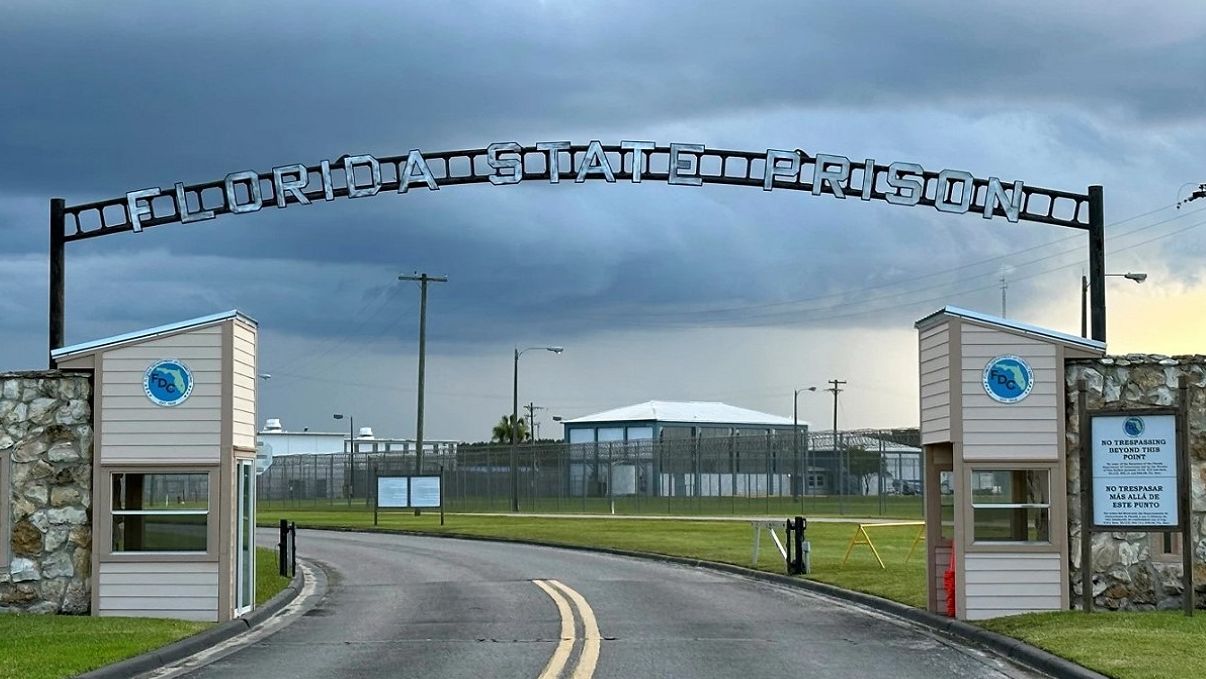ST. PETERSBURG, Fla. — A former Tampa Bay lawmaker calls it a “moral collapse” that a majority of Florida prisons do not have air conditioning.
While federal prisons are required to have air conditioning, state prisons are not. A 2023 report suggested about 75% of the facilities in Florida do not cool the air.
What You Need To Know
A 2023 report found that around 75% of Florida prisons don’t have air conditioning
Officials say it would cost around $582 million to install A/C at all state prisons
Some consider not having air conditioning at prisons to be cruel and unusual punishment, a violation of the Eighth Amendment
Others think the money should be used on continuing education and job training for inmates
“That isn’t just logistics,” said former State Sen. Jeff Brandes, a Republican who represented Tampa Bay in the Florida Legislature from 2010 to 2022. “That’s morally saying, ‘We’re doing something wrong.’”
The Florida Department of Management Services commissioned KPMG in 2022 to develop a 20-year master plan for the Florida Department of Corrections. The plan, released in 2023, found that more than a third of state prisons were in “critical” or “poor” condition, and work for “immediate needs” — basic life, health and safety modifications needed to make Florida prisons inhabitable — would cost $2.2 billion.
According to the plan, adding air conditioning to Florida prisons that currently lack HVAC systems would cost $582 million.
Brandes suggested that all state lawmakers should tour prisons to understand what inmates are dealing with. He said his experience touring facilities — he described the heat by saying it “felt like 105 (degrees)” — convinced him the money should be spent to outfit facilities with air conditioning.
“Going to prison is supposed to be the deterrent,” said Brandes, who is currently the president of the Florida Policy Project. “That is the punishment. You are in prison. Prison is not supposed to be additional punishment while you’re there.”
State Sen. Jonathan Martin (R-Fort Myers) said he disagrees with Brandes. He has argued the $582 million would be better spent on job training and continuing education for inmates, saying they have told him that’s what they prefer.
“There’s a finite amount of resources,” Martin said. “Could we do more if we moved these resources somewhere else?”
Sen. Carlos Guillermo Smith (D-Orlando) argued that not having air conditioning during Florida’s hot summers is a violation of the Constitution’s Eighth Amendment, which outlaws cruel-and-usual punishment.
“It’s not meant to be a luxury hotel. We all get that,” he said. “But the punishment is time away from their families and society and their loved ones. The punishment is not cruel and inhumane conditions.”
Martin, though, pointed to Florida statute 921.002 (“The Criminal Punishment Code”) which specifically states: “The primary purpose of sentencing is to punish the offender. Rehabilitation is a desired goal of the criminal justice system but is subordinate to the goal of punishment.”
He went on to argue that the Eighth Amendment was ratified in 1791, before modern air conditioning existed.
“To say somehow that not having air conditioning is a violation of your constitutional rights flies in the face of everybody over the age of 30 in the state of Florida who rode a school bus to school without air conditioning,” Martin said.
Attorneys representing the state during a lawsuit over hot conditions at a prison in Miami-Dade County recently argued “the lack of air conditioning does not pose a substantial risk of serious harm.” They contended that, to violate the Eighth Amendment, conditions must be “objectively extreme enough to deny an inmate the minimal civilized measure of life’s necessities.”
Brandes said he believes the state was arguing the conditions were cruel, just not “cruel enough.”
“What is cruel? Is it 110 degrees? 115? If you could fry and egg on the floor, would that make it cruel and unusual?” Brandes asked.
Connie Baroth Edson, an inmate advocate in Central Florida, has fought for years to bring air conditioning to prisons.
She said adding air conditioning would decrease turnover among correctional officers (which is a significant issue in Florida) and offer basic humanity to inmates.
“Why are you made to feel like you’re not worthy of anything by not having air conditioning?” Baroth Edson asked.
While she did not think the state would ever pay the $582 million necessary to put air conditioning into all the Florida prisons, Baroth Edson said she was encouraged when the Florida Legislature agreed in 2025 to spend $300,000 on a pilot program to add wall units to some institutions.
The expenditure was ultimately vetoed by Gov. Ron DeSantis.
When Spectrum News requested an interview with the secretary for the Florida Department of Corrections, the department provided a statement that said: “FDC has air-conditioning housing units serving the most vulnerable inmate populations, including the infirmed, mentally ill, pregnant and geriatric.”
The statement said all new institutions are designed to include air conditioning, but noted many existing facilities were built before air conditioning was commonplace.
The Florida Department of Corrections uses “various climate control measures” to reduce heat, according to the statement.

